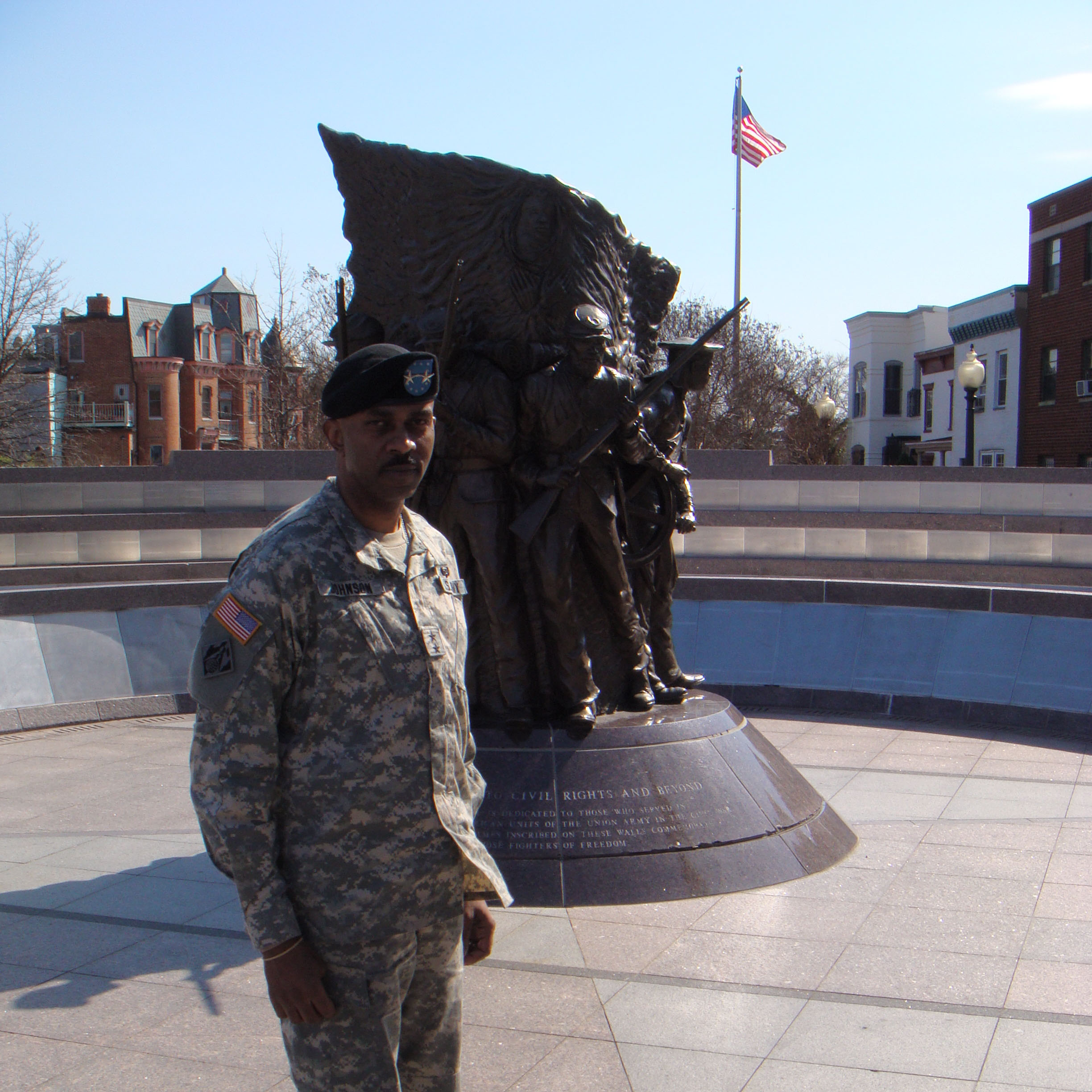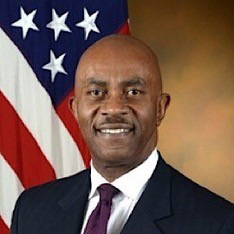“Leadership is an affair of the heart,”according to ISyE Professor of the Practice Ron Johnson. This perspective can be traced all throughout his education and career.
He credits CW4 (Ret.) Don Lesch, the senior military instructor at Lane Tech, a Chicago-area all-boys high school where Johnson was enrolled in Junior ROTC, for setting an example.
“He essentially dared me to go to West Point,” Johnson remembered. “When I told him West Point wasn’t for guys like me — I grew up on the west side of Chicago and thought I was tough — he said, ‘If you don’t think you can make it, maybe you shouldn’t go.’”
That was enough motivation for Johnson, who ultimately earned a bachelor’s degree in mathematics and mechanical engineering in 1976 from the military academy. After serving a few years in the Army, West Point selected him to attend graduate school, with the understanding that he would return to the academy and teach calculus, becoming the course director and assistant professor.
Johnson arrived at Georgia Tech planning to get a master’s degree in civil engineering, but the Institute informed him that he didn’t have the requisite undergraduate classes to do that. So, with the encouragement of the late Griffin Callahan, an ISyE professor who was also a West Point graduate, Johnson enrolled in ISyE’s master of operations research program. And he’s used the skills he learned at ISyE ever since.
In 2004, Johnson was given oversight of the U.S.’s $18.4 billion reconstruction project in Iraq after Operation Iraqi Freedom — an assignment tailor-made for an industrial engineer. “It was stochastic project management like we do in ISyE,” Johnson said. “The Army Corps of Engineers was supporting the Iraqi people but at the same time was trying to meet the operational desires of commanders like General David Petraeus, who were on the ground. General Petraeus was talking to local leaders, who were telling him what they needed, and it didn’t always match U.S. priorities.
“While I was there, we got considerable work done on water projects, some electricity and oil, and began putting infrastructure for education in place. We also had some significant supply chain management challenges. For example, we were moving enormous electricity generators on vehicles through areas that weren’t necessarily friendly. If the convoy was attacked, you couldn’t move fast because the equipment was so big. So throughout the night, we would track the movement of the generators in the ops center and consider factors like the best route to take based on the threat situation.”
After 32 years, Johnson retired from the Army in March 2008 as a two-star general. He had been awarded numerous commendations, including the Combat Action Badge and the Distinguished Service Medal with two Oak-Leaf Clusters, meaning he had received the medal a total of three times, for service and contribution to the nation.
“That had nothing to do with my personal ability,” Johnson said. “It had everything to do with the people I had the pleasure of commanding.
“In the military, you lead the country’s greatest asset: American sons and daughters. These people sacrifice and commit, and you want them to be well-trained and feel good about what they’ve accomplished, and then you want them to get back home safely.”
A few months after his retirement, the National Basket- ball Association (NBA) came knocking on Johnson’s door. The league was reeling from a scandal in which a veteran employee had gambled on the basketball games he refereed. Then-Commissioner David Stern knew something needed to change. A couple of years previously, he had heard Johnson speak to the NBA’s rookie players on leadership and being a role model, and when Stern decided to create a new role overseeing referee operations, he remembered Johnson.
Johnson was about to take a position with Lockheed Martin when his son, Ian, informed him that Stern had phoned. Johnson thought it was a practical joke, right up until he called Stern back, who told him, “Don’t take that job.” After several conversations, Stern tapped Johnson to be the NBA’s senior vice president of referee operations.
It was yet another opportunity for Johnson — essentially hired to put new processes in place — to use his ISyE skills.
For each NBA game — a total of 14 games a night, six days per week — he needed to schedule three-man referee crews. “Forty-two refs are either at a game, going to a game, or leaving a game, and then there are 18 who are getting ready to go or come home from a game,” Johnson explained. “And then some might be on vacation or unavailable due to injury. So now you’re optimizing under constraints.”
All told, Johnson spent five years with the NBA, and many of the systems he developed are still in place.
Johnson demonstrated his leadership qualities once again when he decided to give back financially to Georgia Tech and endowed two scholarships. He initially made an expendable gift to fund a one-time scholarship for an African American student during the 2009-10 academic year. “During the fall homecoming, I had the privilege of meeting the recipient of the scholarship I funded,” said Johnson. “His achievements and his goals for the future inspired me to endow the scholarship in perpetuity. Those of us who benefit from a Georgia Tech degree have an obligation to provide opportunity for the next generation of black students.”
In 2013, Tech invited Johnson back as a professor of the practice. (A professor of the practice is a non-tenured faculty position held by a highly qualified individual who has made a major impact on disciplines important to the Institute.)
As a professor of the practice, Johnson is able to perfectly blend his industrial engineering training with his expertise in leadership. He teaches undergraduate ISyE classes, develops leadership and group-work skills within Senior Design teams, and offers motiva- tion and encouragement to students who are strug- gling academically.
“I teach students how to be people of character, how to persevere, about integrity,” he said. “I believe profes- sors are leaders of their classroom, and as leaders, they should display the qualities that they expect. I come to class, and I’m prepared, I’m energetic, I’m passionate about what I’m doing.
“Whenever I have a student who falls short, I’m not going to just let them fail. I send them an email and tell them to come talk to me. So we sit there and have a conversation, and I tell them, ‘I know you can do better.’ Because they can.”
It is a calling Johnson hadn’t envisioned for himself. “When I retired [from the Army] I knew I eventually would teach somewhere,” he reflected. “Maybe a community or technical college, maybe a smaller HBCU. Never in my wildest dreams did I think I would teach at Tech. I pinch myself every morning. I’m so proud to be here.”

